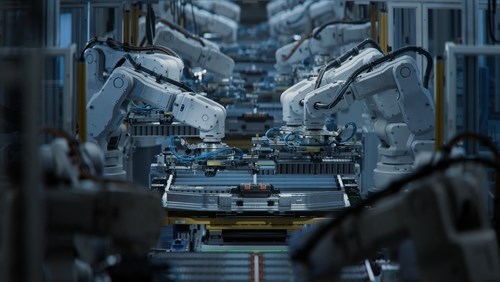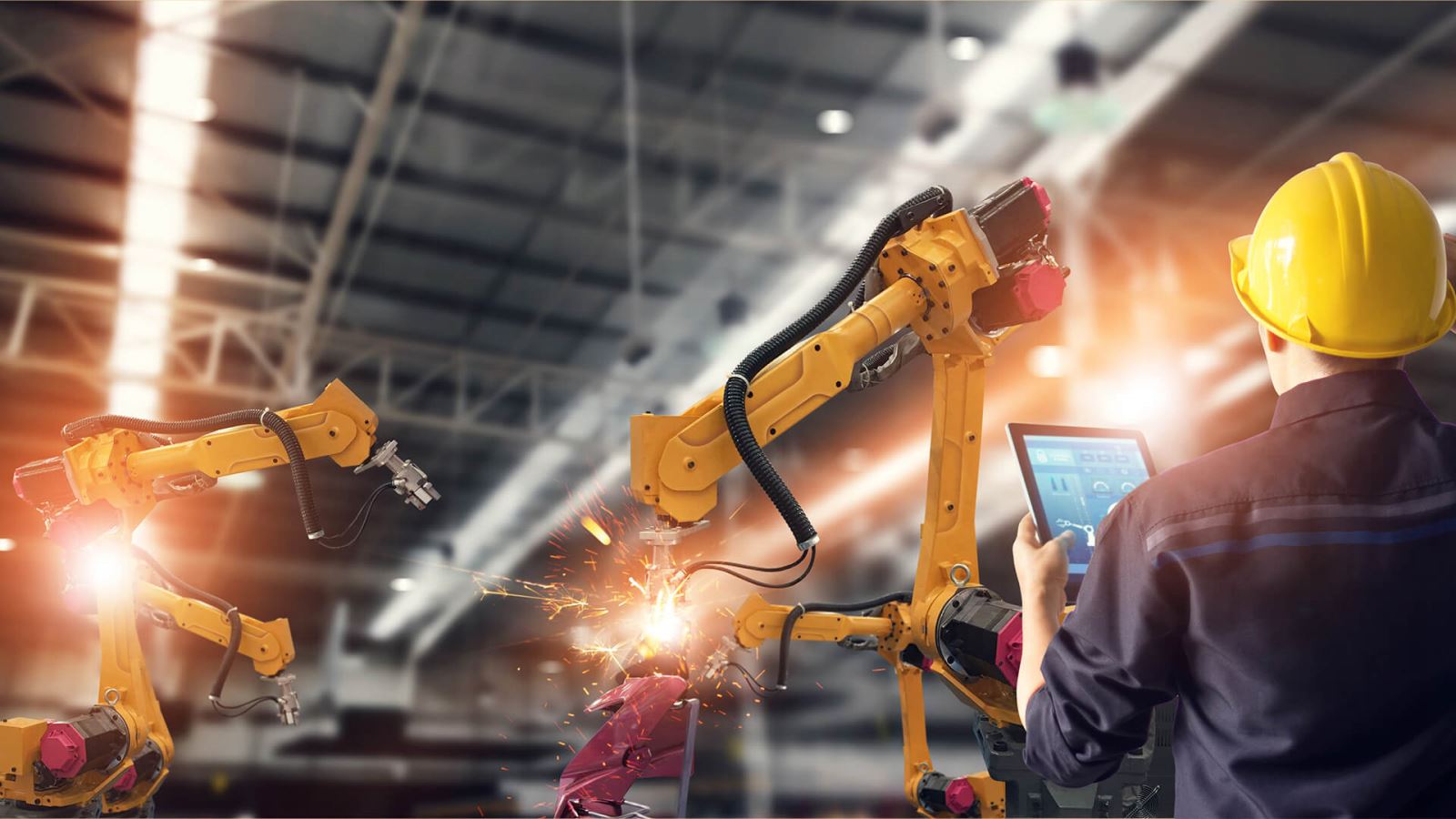
SCANOLOGY has just introduced NimbleTrack Gen2. With upgraded technology, SCANOLOGY's NimbleTrack Gen2 is capable of scanning large and complex areas significantly faster, while maintaining measurement-level accuracy. This is the next generation of the company's mobile optical tracking and 3D scanning systems. SCANOLOGY's NimbleTrack Gen2 is designed to deliver higher performance, especially in speed and measurement range.

A breakthrough opportunity for R&D processes awaits the Vietnamese engineering community. The specialized workshop "Driving Engineering Innovation Through Smart Simulation" organized by ANSYS will take place on October 29, 2025, at the Innovation Hub Building, updating the latest advanced simulation solutions for the manufacturing, electronics design, and Nano-Micro industries.

In the global race to automate manufacturing, China is emerging as a pioneer with the “dark factory” model – where robots and artificial intelligence completely replace humans. Requiring no light or rest, the new generation of factories operate continuously 24/7 with superior precision and efficiency.
In this article, we explain the root causes of human error, highlight some common errors in manufacturing and proffer strategies for factories to reduce the occurrence of errors in their shop floors.
Around 90% of accidents can be attributed to human errors! In this article, we explain the root causes of human error, highlight some common errors in manufacturing and proffer strategies for factories to reduce the occurrence of errors in their shop floors.

Human error: A cause or the result of failure?
Manufacturing shop floors are awash with human-machine interactions – an arrangement that inevitably produces errors. Then again, even without complex machines to operate, human workers will still make errors if working systems are disorganized, supervision misguided, or if they are unable to remember ‘minute’ details.
The susceptibility of human workers to errors highlights the need for robust systems that reasonably reduces the ‘opportunity’ for errors. Even when errors somehow occur, these systems make it easy to manage the errors and prevent escalation.
Establishing quality systems is very important as every human-induced factory error translates to an ‘unsafe act’ and carries the potential to cause accidents.
According to the Human Error Taxonomy, human errors can be broadly classified into three categories: slips, lapses, and mistakes. This classification is supported by the Health and Safety Executive, UK who also posits that human error and deliberate violations fall under the all-encompassing term ‘human failure’.
Overall, errors can be skill-based, rule-based, or knowledge-based.
In the next section, we’ll describe some common causes of human error based on these classifications.

Leading causes of human error
Absence of SOPs (or disregard for the procedures)
It’s not uncommon to find manufacturing workers stuck, confused, or unclear about how to proceed with a particular job task. Often, they may find that a task is too complicated or tedious. Even more, a worker could deduce close similarities to another task, and be left confused on the next steps to apply. In such instances, a lack of clear standard operating procedures and checklists that show the sequence of steps to complete the task will likely result in an error.
OSHA recommends that factories provide standard operating procedures for their workers.
Sometimes, however, these procedures may be present but inaccessible or deemed an ‘inconvenience’ based on an assumed familiarity with the work process. Here, if a worker forgets, wrongly performs, or omits a single step/ action, a human error will have occurred that can have potentially devastating consequences, depending on the nature of the task.
Horseplay
Uncontrolled ‘fun’ may quickly lead to workplace violence which is a blatant violation of safety rules and regulations. Operational negligence, a direct consequence of horseplay, can be particularly hazardous in the presence of sharp and/or rotating machine parts present on most manufacturing shop floors.

Stress and psychosocial discomfort:
A study of 200 manufacturing firms across Malaysia found human error has a ‘positive and significant correlation’ between repetition, stress, fatigue, and adverse working conditions.
A worker under intense physical or mental strain is not working near full capacity and will lose some zest and attentiveness. At that moment, the worker has a lesser ‘ability’ to perform and can be considered error-prone. For office-based workers, stress may lead to ‘slip errors’ which can be evident in incorrectly logged data, and field workers under stress are more likely to disregard procedures or forget these procedures altogether.
Here are some factors that can cause psychosocial discomfort in factories:
Inadequate workplace ‘education’
Education measures remove the ‘mistakes from the workers’ and are a vital aspect of avoiding knowledge-based error on shop floors. These measures are not exclusive to training but may also include inductions, instructions, and seminars. Establishing clearly-communicated rules and providing procedures, standards and guides can also serve as a means of educating workers.
The nature of the manufacturing industry requires that educational strategies are proactive and consistent. For policies and procedural documents, they should be regularly updated, easily accessible, and actively championed.
Poor management, supervision, and organization
The management of any organization plays a huge role in the prevalent safety culture. And summarily, the frequency of human errors will be dependent on the soundness, or lack thereof, of the HSE culture. A working culture where blaming, and negativity are the norm is a breeding ground for errors. Even if fear induces workers to avoid errors, it will also prevent them from reporting unsafe acts of their peers or conditions that can lead to error.
Managers and supervisors should act proactively to remove faulty or error-prone machines, substitute them if applicable or isolate them from working areas of the facility. This will significantly reduce machine-related errors.
Also, it’s the duty of the managers to provide PPE, safety guides, and SOPs to stakeholders across the organization. Furthermore, performing regular inspections and internal audits will underscore the management’s commitment to minimizing errors even as it enforces pre-established rules and regulations.
The bottom line
Regardless of the task, humans make between 3-6 errors per hour!
Manufacturing workers need help. Besides having to deal with complex machines, they are expected to seamlessly plug in with working models that demand ever-increasing gains in efficiency and productivity. Physically and mentally, this can take a toll.
These days, many factories aid their workers with digital tools and automated systems that reduce human input so that workers can channel their efforts to less stressful and erroneous tasks.
Where workers have to tackle complex tasks, digitalization enables factories to organize multi-faceted and interactive training that improves the understanding of the process. Workers can access digitized work instructions and checklists from their mobile devices, bypassing the redundancies of paper procedures.
Managers too can leverage digital tools to improve inspections and organize less erroneous working systems off enhanced visibility.
Source: maximl
Read Quality Mastery magazine to get more information about quality management: https://qualitymastery.v-proud.vn/
If you are looking for quality management solutions, visit the following websites: v-proud.vn/product and doluongcongnghiep.vn.
#nhamay #loiconnguoi #humanerror #nguoilaodong #xuongsanxuat #factory #manufacturing
(84) 896 555 247